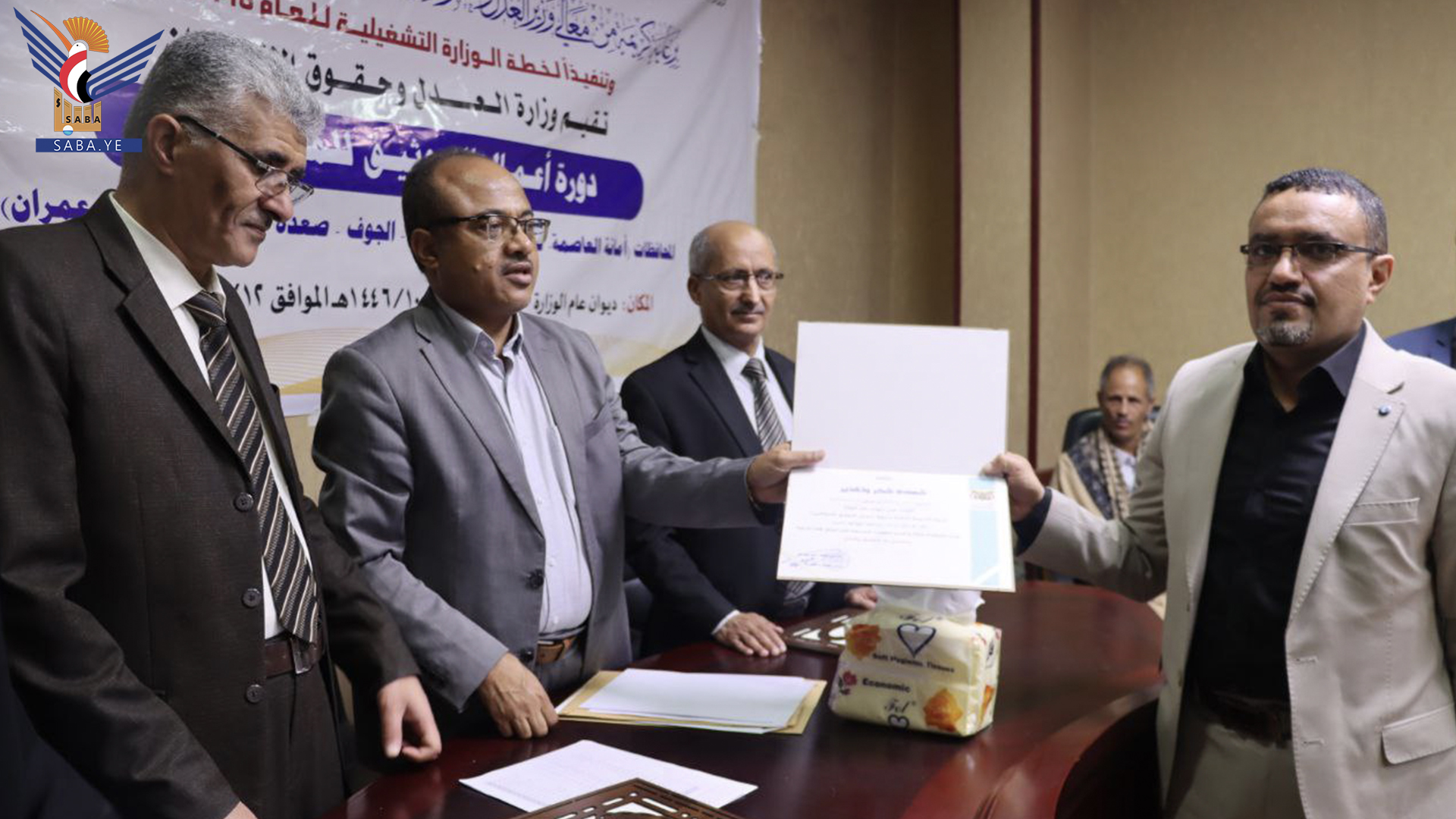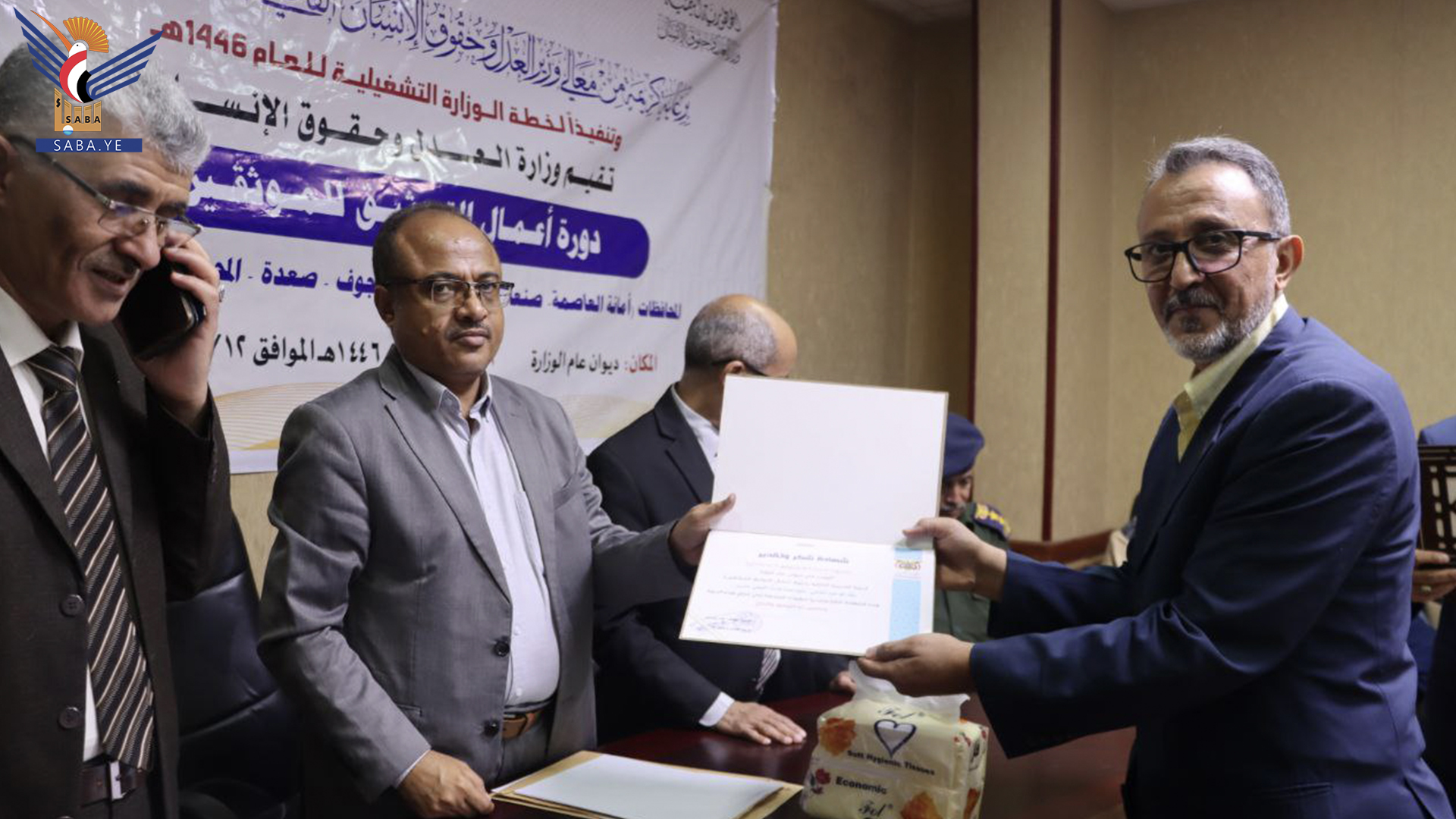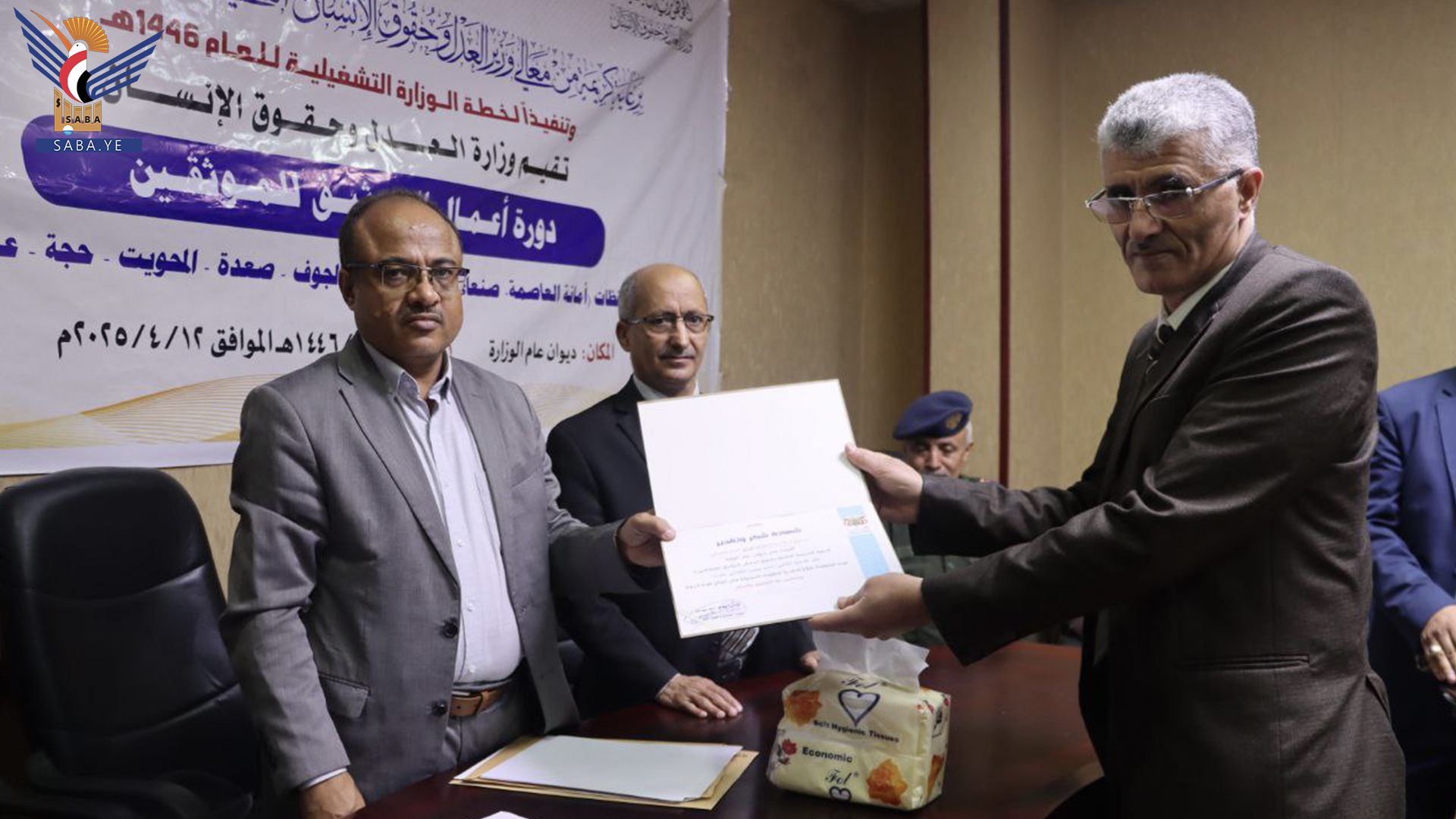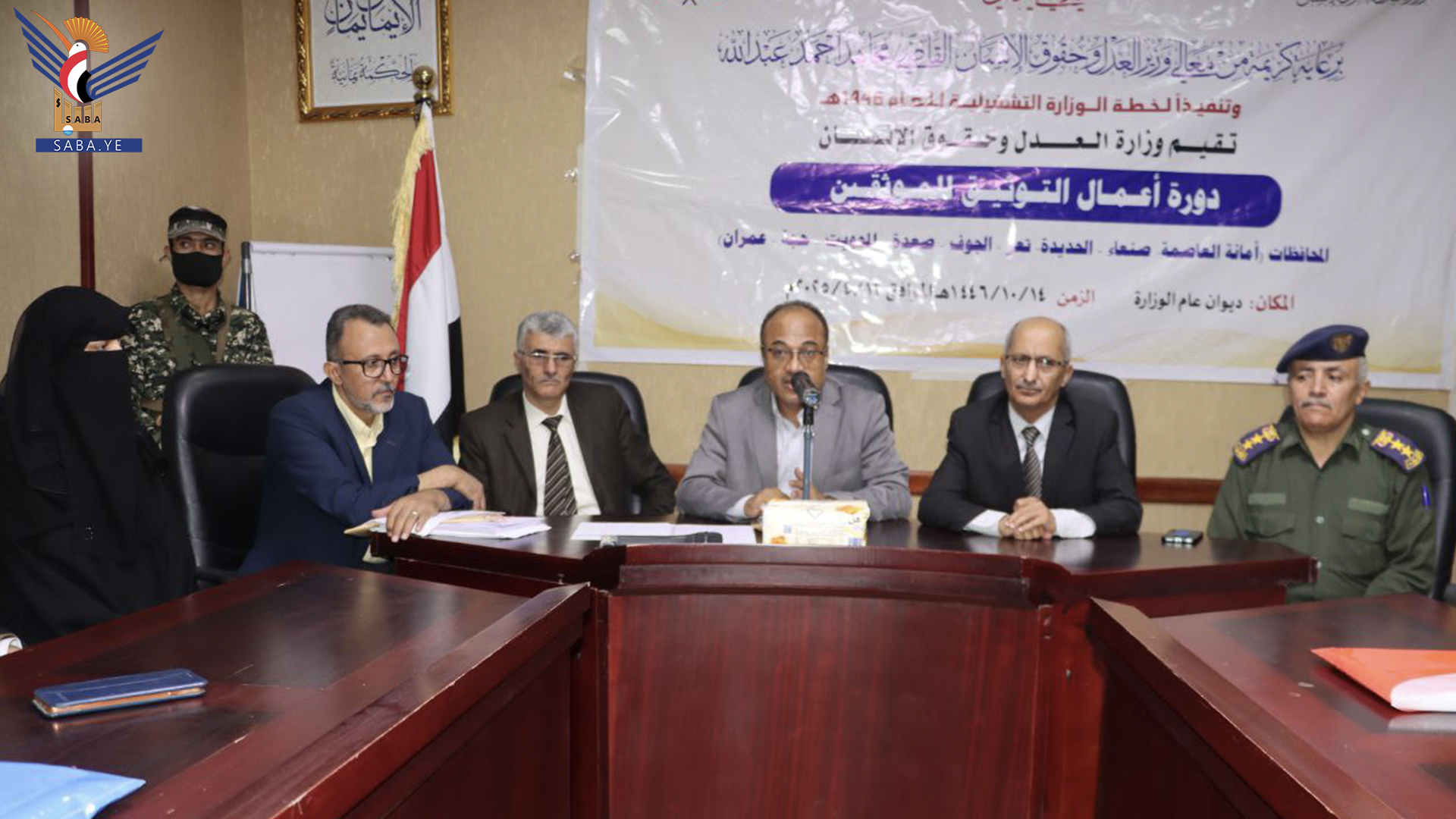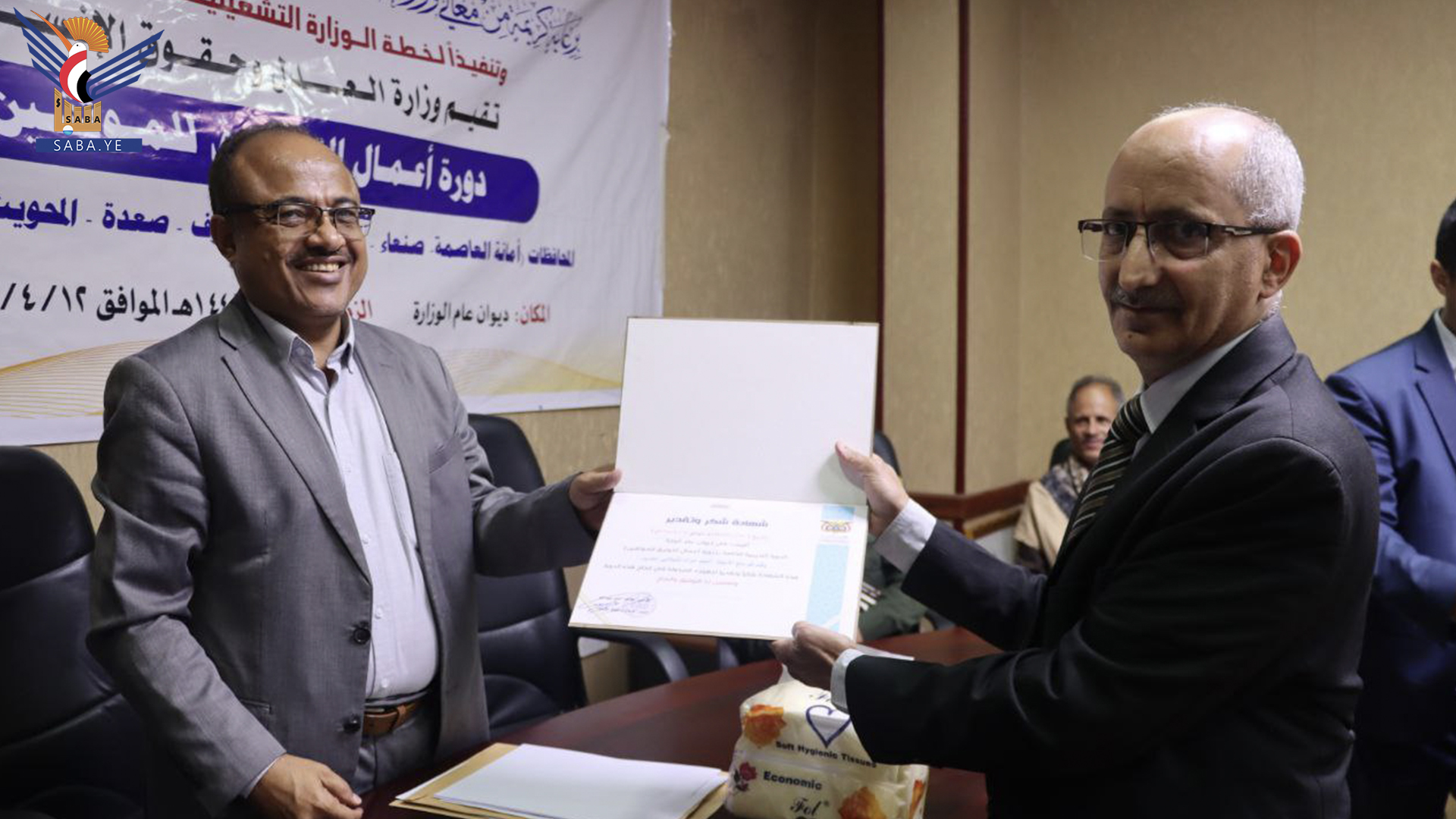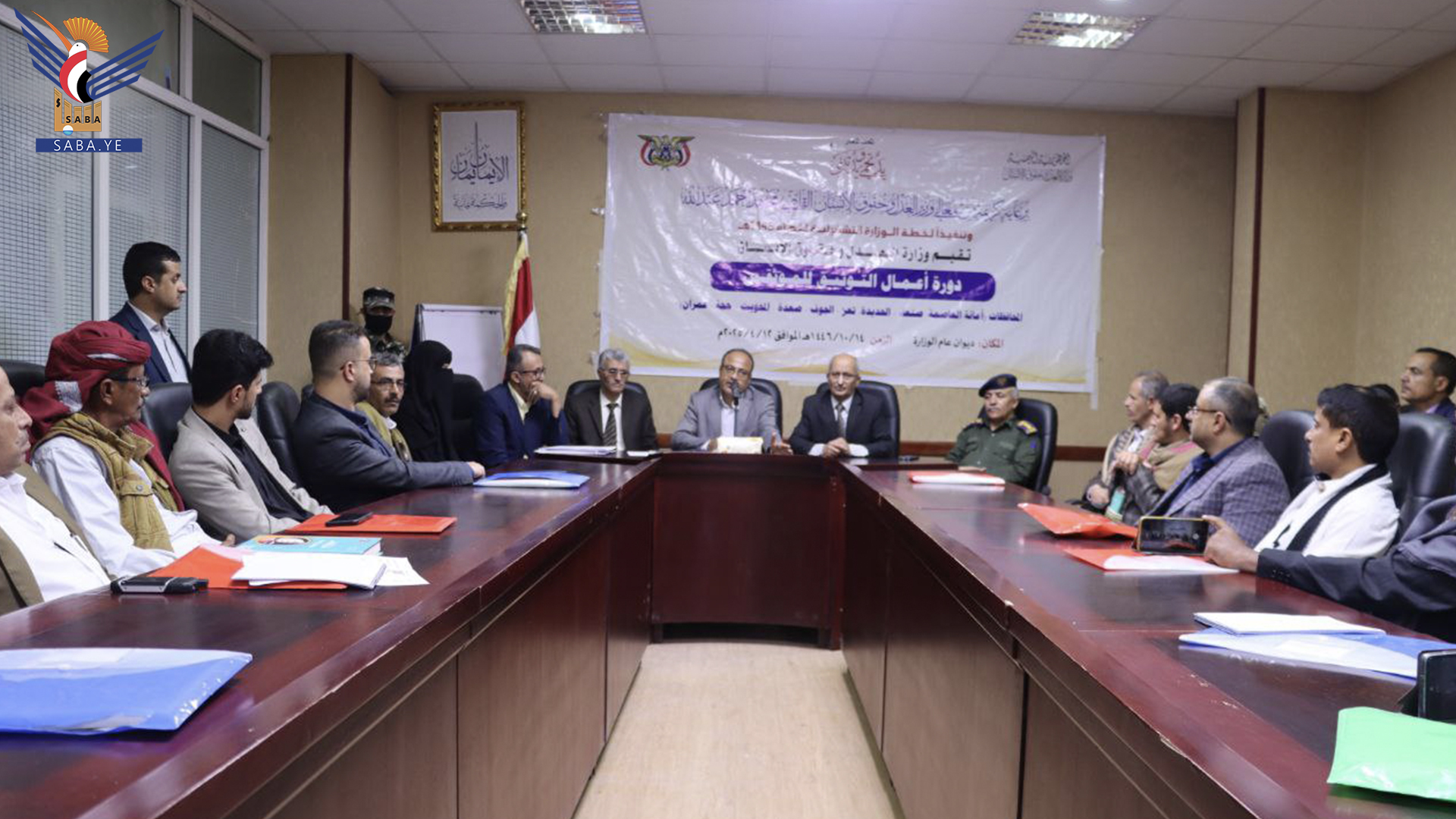
Sana'a - Saba:
The Ministry of Justice and Human Rights on Wednesday concluded a specialized five-day training course for 33 registrars and notary specialists.
The participants hailed from the capital Sana'a, and the provinces of Sana'a, Hodeida, Amran, Mahweet, Sa'ada, Hajjah, Taiz, and Jawf.
The course, led by experts and officials from the Ministries of Justice and Human Rights and Interior, focused on enhancing the trainees' knowledge and skills in crucial areas such as notarization laws, real estate registry procedures, administrative transactions and contracts, personal status matters, and inheritance law. Additionally, the training included instruction on the implementation of the Notaries and Trustees' Guide.
At the closing ceremony, Minister of Justice and Human Rights judge Mujahid Abdullah commended the active participation of the trainees and the dedication of the trainers.
He stressed the importance of the participants' comprehensive understanding of legal, procedural, and precautionary principles, emphasizing that this knowledge will be instrumental in minimizing errors and addressing practical and professional shortcomings among notaries in real estate and general notary offices across the governorates.
Judge Mujahid underscored the necessity of effectively identifying instances of forged documents and seals and adhering to sound and accurate procedures for referring such cases to the security services and the Public Prosecution Office.
He also emphasized the integrity of the processes involved in selecting and approving legal trustees, licensing their professional practice, and establishing robust mechanisms for monitoring and accountability.
Furthermore, Judge Mujahid highlighted the importance of equipping participants with the skills to handle notarization cases and real estate transactions involving individuals suspected of illicit gain, illicit enrichment, and money laundering.
He also detailed preventative measures against these crimes, methods for their detection, and the apprehension of perpetrators, as well as the need for close coordination with the Anti-Corruption Commission, security services, and relevant prosecution offices to ensure the completion of legal proceedings.
Looking towards the future, Judge Mujahid emphasized the critical importance of paving the way for digital transformation and electronic documentation processes.
He also highlighted the need to integrate the real estate registry with the notary sector and offices under the umbrella of the Real Estate Registry Authority, which will be affiliated with the Ministry of Justice and Human Rights.
Mujahid stated that this integration is paramount in reducing civil, criminal, and real estate disputes before public prosecution offices and courts, as well as commercial disputes, and will significantly contribute to attracting and encouraging real estate investment and comprehensive development within the country.
The Ministry of Justice and Human Rights on Wednesday concluded a specialized five-day training course for 33 registrars and notary specialists.
The participants hailed from the capital Sana'a, and the provinces of Sana'a, Hodeida, Amran, Mahweet, Sa'ada, Hajjah, Taiz, and Jawf.
The course, led by experts and officials from the Ministries of Justice and Human Rights and Interior, focused on enhancing the trainees' knowledge and skills in crucial areas such as notarization laws, real estate registry procedures, administrative transactions and contracts, personal status matters, and inheritance law. Additionally, the training included instruction on the implementation of the Notaries and Trustees' Guide.
At the closing ceremony, Minister of Justice and Human Rights judge Mujahid Abdullah commended the active participation of the trainees and the dedication of the trainers.
He stressed the importance of the participants' comprehensive understanding of legal, procedural, and precautionary principles, emphasizing that this knowledge will be instrumental in minimizing errors and addressing practical and professional shortcomings among notaries in real estate and general notary offices across the governorates.
Judge Mujahid underscored the necessity of effectively identifying instances of forged documents and seals and adhering to sound and accurate procedures for referring such cases to the security services and the Public Prosecution Office.
He also emphasized the integrity of the processes involved in selecting and approving legal trustees, licensing their professional practice, and establishing robust mechanisms for monitoring and accountability.
Furthermore, Judge Mujahid highlighted the importance of equipping participants with the skills to handle notarization cases and real estate transactions involving individuals suspected of illicit gain, illicit enrichment, and money laundering.
He also detailed preventative measures against these crimes, methods for their detection, and the apprehension of perpetrators, as well as the need for close coordination with the Anti-Corruption Commission, security services, and relevant prosecution offices to ensure the completion of legal proceedings.
Looking towards the future, Judge Mujahid emphasized the critical importance of paving the way for digital transformation and electronic documentation processes.
He also highlighted the need to integrate the real estate registry with the notary sector and offices under the umbrella of the Real Estate Registry Authority, which will be affiliated with the Ministry of Justice and Human Rights.
Mujahid stated that this integration is paramount in reducing civil, criminal, and real estate disputes before public prosecution offices and courts, as well as commercial disputes, and will significantly contribute to attracting and encouraging real estate investment and comprehensive development within the country.
